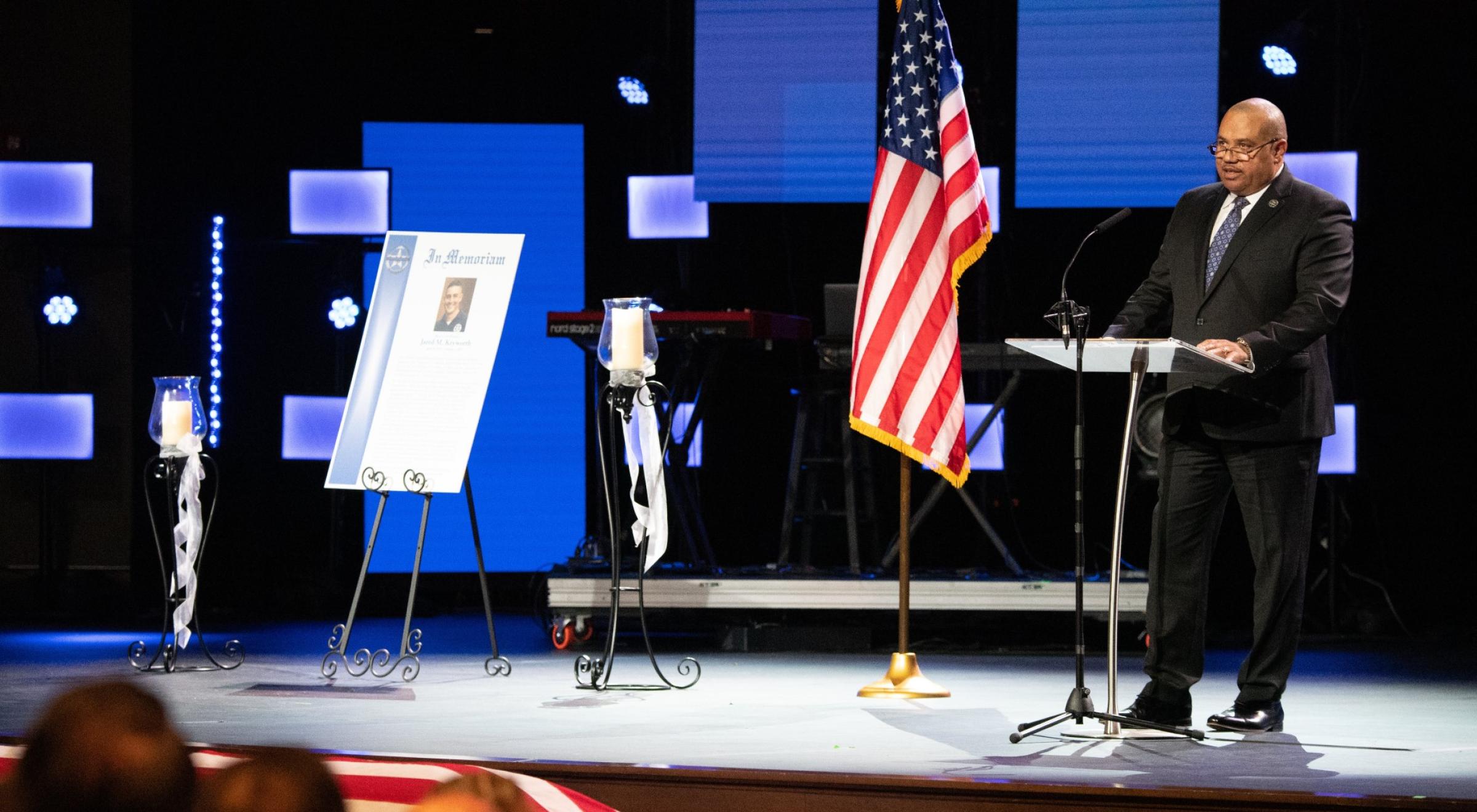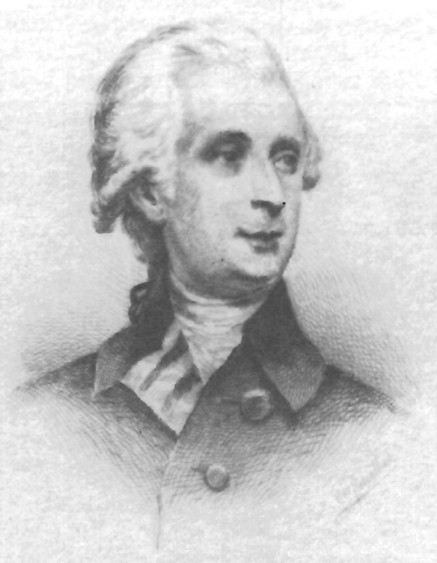
Jonathan Jackson
The First Marshal of Massachusetts
Jonathan Jackson's great-grandson described the first Marshal of Massachusetts as:
a man of transparent, straightforward character; ardent, loyal, care-taking; and devoted; judicial and conservative in temperament; eminently fair minded; not remarkably talented or studious, but disposed, in the face of present needs, to make the most of his powers for the welfare of the public and of his friends; a lover of law and order, and consequently a warm supporter of the builders of the Federal Constitution and of the government of Washington and Hamilton.
Born on June 4, 1743, in Boston, Jackson played a prominent role in Massachusetts history before and after the American Revolution. After graduating from Harvard in 1761, Jackson moved to Newburyport, where he soon established his own business as an importer of British goods and as a merchant. In addition, Jackson involved himself wholeheartedly in the affairs of the town, serving on such committees as those dealing with the schools, determining the representation of the General Court, raising recruits for the army, and educating girls.
At the state level, Jackson served in the Massachusetts Provisional Congress in 1775, the Massachusetts General Court in 1777, and the Massachusetts constitutional convention in 1779.

By the outbreak of the Revolution, Jackson was a wealthy man. His various business ventures proved successful, and he also capitalized on an inheritance valued at twenty thousand guineas. As the troubles with England increased, Jackson took a decidedly pro-independence stand, despite the fact that his fortune depended on trade with Great Britain. In 1776, he sat on the Massachusetts Committee of Correspondence and was chairman of the Committee of Safety. Elected to the Massachusetts House of Representatives, Jackson served on the Board of War. During the war, Jackson continued his public activities, serving in the Massachusetts constitutional convention in 1779, where he and John Adams became friends, and representing his state in the Second Continental Congress in 1782. Jackson also turned the ships he had used in trade into privateers preying on British ships. He was a "principal Contractor" supplying Washington's army, though accusations in Congress that his two thousand percent mark-up on goods sold the army was excessive irritated him.
Indeed, the losses of his ships and trade during the war nearly bankrupted him, particularly since he generously loaned large amounts of his own money to the American cause. At the end of the war, Jackson needed a job. He accepted an appointment as justice of the peace for Essex County, and tried to resuscitate his importing business, but with little success.
In 1789, he won election for state senator. During the Shays' Rebellion in 1787, Jackson served as second-in-command of a cavalry regiment before becoming aide-de-camp under General Lincoln. These activities, however, turned little profit for Jackson. Although not a pauper-he continued to reside in a large mansion in Newburyport-Jackson needed some job that would give him a steady income. Consequently, when the new federal government was formed, Jackson wrote the President to apply for a job. He mentioned in his letter that he was "born of a family not obscure." The Revolution, however, threw him into hard times.
He described himself as middle aged, with a wife and nine children. He asked Washington for an office of "reasonable emolument." The job he sought was Collector of the Revenue. Several weeks later, Jackson decided to go to New York, the nation's capital, and apply for the job in person. Unfortunately, his friend and former commanding officer, General Lincoln, wanted the same position. Just before he was to leave for New York, Jackson learned of Lincoln's similar ambition. Consequently, he used his fifteen minute interview with the President to promote the candidacy of Lincoln, who got the appointment. When Washington learned of Jackson's sacrifice, he appointed him Marshal.
He was 46 years old at the time of his appointment. One of Jackson's duties as Marshal was to escort the President through Massachusetts when Washington went on a tour of the country in 1790. The President held a reception in Jackson's home, after which they had tea together. Apparently, Jackson's sons were quite excited by the presence of the new President in their house, but disappointed that the topic of discussion centered on crops, not battles.
In 1791, Jackson accepted appointment as inspector of the revenue, moving to supervisor of revenue for the whole District in 1796. He held this position until its abolishment in the early 1800's. Jackson refused Washington's offer to appoint him Comptroller of the Treasury, claiming that his health prohibited a move to Philadelphia, which was then the capital. He also believed he could be of more use to the administration in Massachusetts.
From 1802 to 1806, Jackson was treasurer of the State of Massachusetts. He also worked as treasurer of Harvard during part of this period. In addition, he was the first president of the Boston Bank (now the First National Bank of Boston) and one of the founders of the American Academy of Arts and Science. He died in 1810 at the age of 67. His descendent included Oliver Wendell Holmes, the famous author and educator, and his son of the same name, who became a Supreme Court Justice.

